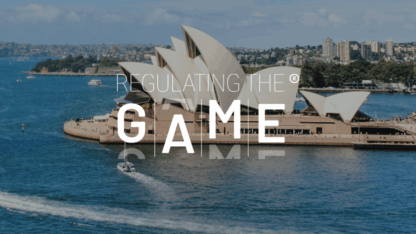SBC’s Summit Latinoamérica brought together industry leaders, regulators and technology providers to discuss pressing issues and emerging opportunities in Latin America’s igaming and gambling industry. Unsurprisingly, Brazil took center stage as the country prepares to roll out its new gambling regulations in January 2025, a move that is anticipated to inspire similar systems across other countries.
Here are the key insights and discussions from the event, highlighting Brazil’s regulatory landscape, compliance challenges and the urgent need for fraud prevention as companies gear up for Brazil’s new licensing requirements.
1. Brazil’s Gambling Market Frenzy
The conference was abuzz with discussions about Brazil’s transformative move to implement a locally regulated gambling license, replacing foreign licensing systems. This change introduces compliance requirements that include hefty licensing fees and taxes but promises significant revenue for Brazil, estimated to boost the economy by $3 billion.
As Brazil’s January 1 deadline nears, many operators urgently seek partners to help them navigate Brazil’s regulations. The competitive atmosphere has led to a “gold rush” dynamic, where companies are vying to position themselves within Brazil’s newly regulated market.
2. Rising Fraud Threats and Prevention Strategies
With Brazil’s high fraud rates, the conference highlighted the critical need for advanced fraud prevention measures. Operators discussed how regulations would enforce strict anti-fraud requirements, including enhanced geolocation, AML (Anti-Money Laundering) and KYC (Know Your Customer) protocols. However, many are concerned about controlling high-risk behaviors without adequate technology and regulatory support.
Several common fraud types discussed included bonus abuse and multi-accounting, as operators brace for potentially increased fraud risks. With higher stakes, many platforms want to implement robust fraud prevention strategies to keep users secure and engaged while protecting themselves from massive fraud losses.
3. Technology as the Compliance Catalyst
Compliance is more than meeting checklists; it requires technology-driven solutions that streamline KYC processes, detect suspicious activity and ensure regulatory standards are met. Advanced geolocation capabilities, for example, are critical for ensuring users are within approved jurisdictions.
These solutions utilize real-time data processing to adapt to new regulations dynamically, making compliance an integrated part of business operations rather than an afterthought. Additionally, machine learning models can analyze patterns of behavior to identify potential non-compliance before it becomes a regulatory issue, offering proactive rather than reactive protection.
4. Future Prospects and Industry Readiness
Brazil’s evolving regulatory landscape is expected to inspire similar models across other Latin American countries as they anxiously watch Brazil’s strategy to capture revenue, regulate gambling and foster a safe digital gaming environment.
As the industry matures, operators who equip themselves with sophisticated compliance and fraud prevention technologies will be best positioned to thrive. Operators adhering to Brazil’s regulatory requirements – and those anticipating similar frameworks in other countries – have ample opportunity to build a competitive advantage by staying compliant, enhancing transparency, and fostering a resilient gaming ecosystem that attracts loyal players and partners.
Compliance to Fuel Success
The SBC Summit Latinoamérica underscored Brazil’s influence in shaping Latin America’s gambling industry. With high regulatory standards and increasing fraud risks, companies looking to operate in Brazil must prioritize compliance and fraud prevention as they prepare for the new licensing landscape. As Brazil’s gambling “gold rush” continues, only the operators with solid partnerships and technology solutions will be able to capitalize on this promising market.








